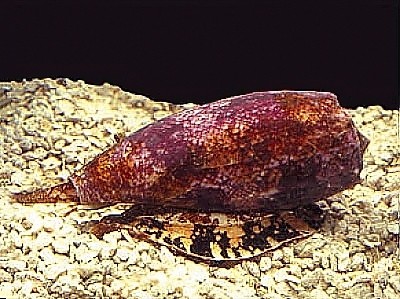Team exploration investigates marine-derived drug possibility
extracting chemical compounds from marine organisms that live in
deep-sea reefs, which have the potential to treat human diseases
such as cancer and Alzheimer's.
This approach is the latest expedition for the team, which has led to the collection of tens of thousands of marine organism samples and the identification of a number of promising potential drugs now in various stages of development for treating cancer, Alzheimer's, malaria, AIDS and other ailments.
The ecological importance of the reefs and the identification of factors responsible for the incredible diversity of the deep-sea reefs between Florida and the Bahamas has led the team to take this direction, which could well deliver the prospect of marine-derived drug therapies.
"We've found incredible and surprising diversity at other deepwater reefs near Miami and Bimini, and some promising potential disease treatments, so we're very excited about the chance to explore these new areas," said Amy Wright, director of the Harbor Branch Division of Biomedical Marine Research, >University of Miami.
The reefs were discovered in 2,000 to 2,900 feet of water last December by a University of Miami team using sonar techniques and contains all manner of slopes and mounds as high as 350 feet, all of which are likely to harbour a wide array of sponges, corals, fish, and other animals.
The expedition will have two main goals. First, the team will use the submersible to explore those seafloor areas that appear most promising based on their sonar map contours.
As this work progresses, the team will be able to better predict correlations between map data and biodiversity on the bottom.
During each submersible dive, Harbor Branch experts will be collecting samples of organisms such as sponges and corals that will be tested to determine if they, or microorganisms living within them, produce chemicals with pharmaceutical potential.
One goal is to find and collect organisms that have never been seen, which happens on almost every one of the Harbor Branch team's expeditions.
Other organisms will also be collected because even well known species can produce different and potentially important chemicals depending on the depth, temperature, and location at which they are found.
Drug discovery represents a promising outcome of marine biotechnology research. Biochemicals produced by marine invertebrates, algae and bacteria, are different than those from related terrestrial organisms and thus offer great potential as new classes of medicines.
Marine-derived drugs has resulted in an antibiotic from a fungi, two closely related compounds from a sponge that treat cancer and the herpes virus, and a neurotoxin from a snail that has painkiller properties that make 10,000 times more potent than morphine without the side effects.
In addition to new medicines, other uses for marine-derived compounds include: cosmetics (algae, crustacean and sea fan compounds), nutritional supplements (algae and fish compounds), artificial bone (corals), and industrial applications (fluorescent compounds from jellyfish, novel glues from mussels, and heat resistant enzymes from deep-sea bacteria).






